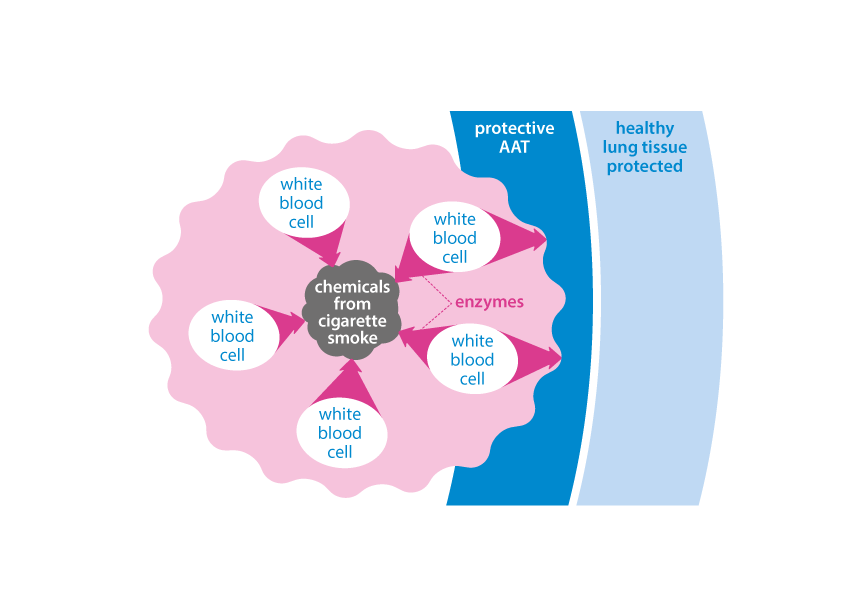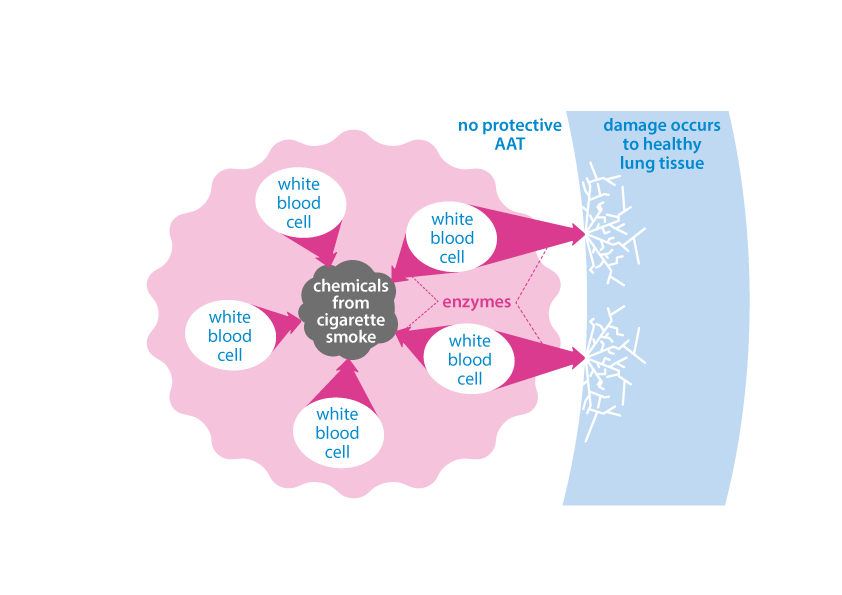It’s thought that about 12,000 people in the UK have the ZZ genetic type of the condition, and up to 73,000 have the SZ genetic type. In both groups most people remain healthy, so few have been diagnosed. Proportionally more people who have the SZ type remain well, compared to ZZ.
People with AATD lack a protective chemical in the body called alpha-1-antitrypsin. This makes them much more vulnerable to the effects of inhaling smoke or other toxic materials like dust, fumes or chemicals.
Having these low levels of alpha-1-antitrypsin increases the risk of lung disease. If you have AATD, you’re more likely to develop chronic obstructive pulmonary disease (COPD). You may also develop COPD at a younger age than usual, and it may progress more rapidly than normal COPD, especially if you smoke.
It can also sometimes cause liver problems, skin rashes and immune problems.
What is alpha-1-antitrypsin?
Alpha-1-antitrypsin (AAT) is an enzyme inhibitor. This means it controls enzymes in your body.
What are enzymes?
Enzymes are proteins that make chemical processes happen in your body. They do lots of different jobs. For example, some are involved in building up and breaking down parts of the body. Some help digestion. Others help you move by using energy to make your muscles contract. When enzymes are not properly controlled they can cause damage to your body tissue.
AAT is mainly produced by your liver. It’s released into your blood and works in all parts of your body. It especially works in the lungs to control the enzymes that can cause lung damage.
What does alpha-1-antitrypsin do in my lungs?
When you have an infection, white blood cells in your body work to fight off the infection. As part of their defence, they produce enzymes that allow them to move into the lung and break down the bacteria causing the infection. They also do this as part of your body’s response to breathing in cigarette smoke.
But as well as breaking down proteins in the bacteria, these enzymes can also damage the proteins which your lungs are made of. To stop this, alpha-1-antitrypsin (AAT) damps down the effect of the enzymes, reducing the damage to the surrounding lung.

If you have a low level of AAT, the surrounding lung isn’t protected as well as it should be. So when you breathe in smoke or have a lung infection, the enzymes will cause much more damage to the surrounding healthy lung. This can lead to the development of chronic obstructive pulmonary disease (COPD). It’s especially damaging to the small air spaces (alveoli) where oxygen and carbon dioxide are exchanged – these become bigger leaving holes referred to as emphysema.








